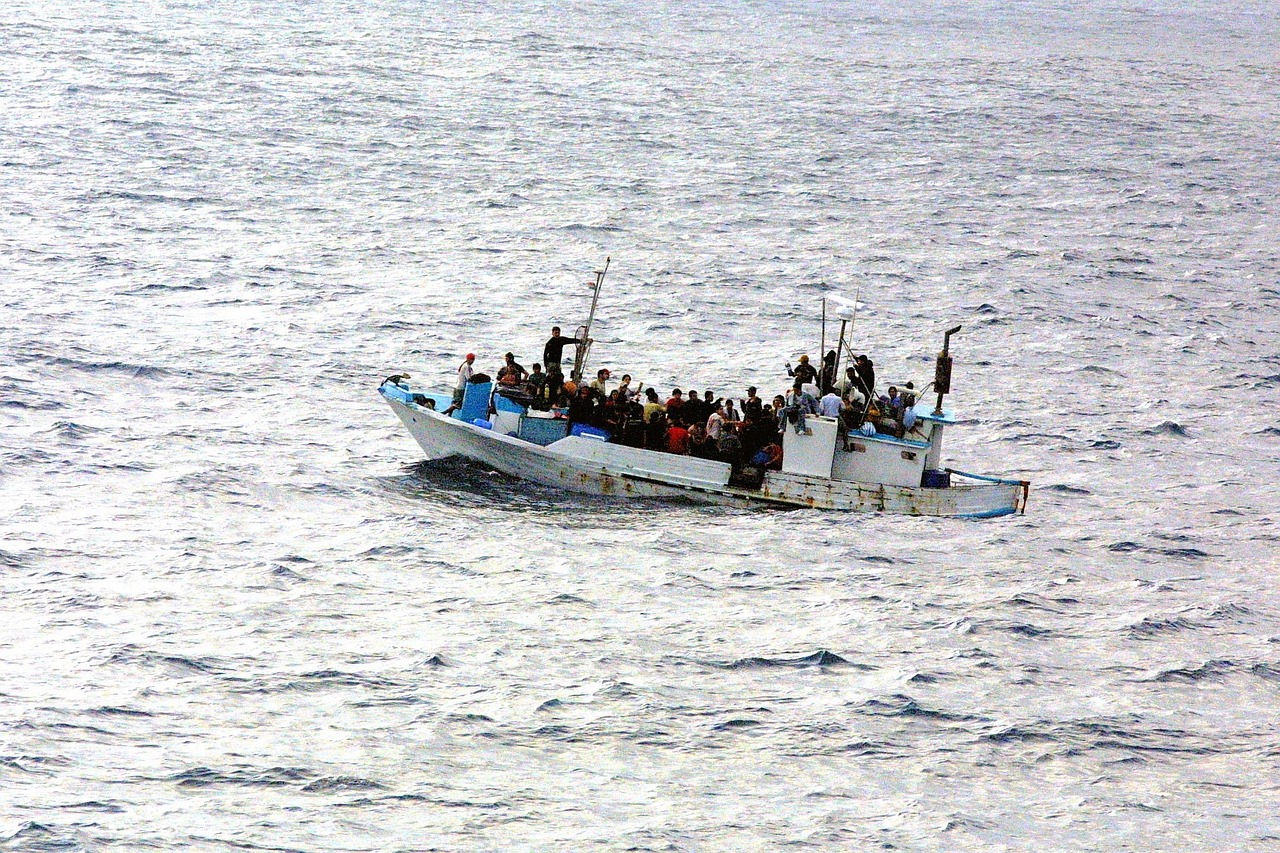For a country that has dealt with several waves of refugees, it seems counter-intuitive that India does not have an established domestic law on refugees or a concrete refugee policy. This big gap will become a huge problem, as climate change displaces thousands into India in the years and decades ahead.
Religious tensions have driven conflict across the globe for centuries.
In the previous decade, authors like Chetan Bhatt had suggested that if the Bharatiya Janata Party (BJP) was to truly abide by its Hindutva roots while governing India, a battle would be fought over the Constitution between Nehru’s India and a theocratic India.
In 2021, it is worrying to see these predictions come true so accurately. Today, the approach of Prime Minister Narendra Modi’s government has largely been to exclude minorities from democratic practices under the garb of majoritarianism and national security.
Since the rise of the BJP in 2014, there has been a distinct increase in communal violence against Muslims. According to data from the Ministry of Home Affairs, between 2015 and 2017, there was a 9 percent increase in reported religious violence nationwide, the majority of which was directed towards Muslims.
The latest data available dates back to 2017 and indicates a total of 822 incidents, 111 deaths and 2,384 injuries. This includes lynching, cow-related violence, forced conversion and religiously motivated mass violence. There is a distinct possibility that such violence is repeatedly unreported due to various factors.
Furthermore, the BJP government has pursued discriminatory legislation such as the Citizenship Amendment Act (CAA) and the National Registry of Citizens (NRC), which weaponises the lack of a domestic refugee law against Muslim refugees.
An Increasingly Dangerous Home for Refugees
India has long been the destination for various refugee groups fleeing political persecution, armed conflicts, discrimination and oppression. For a country that has dealt with such an influx of people, it seems counter-intuitive that India does not have an established domestic law on refugees or a concrete refugee policy.
India is not a signatory to the 1951 Refugee Convention, and to its credit, rightly so. The Convention was articulated in the context of the travesties faced by European refugees in the post-War years. After its mandate was opened up to the rest of the world, India’s had reservations about the ‘Eurocentricity’ of the instrument and its inconsideration of Asian refugee realities (which persist to date).
Despite this, as a host, India has certain responsibilities under customary international law: the responsibility of protecting the right to life, and non-refoulment, which is the practice of not returning refugees back to their origin country against their volition. Yet, in recent times, these responsibilities have been flouted, and the lack of domestic refugee laws is being misused politically to discriminate between refugees on the basis of religion.
Take the issue of cross-border migration from Bangladesh. India dealt with a refugee exodus during the 1971 liberation war of East Pakistan. But New Delhi has now framed this issue as a fundamental threat to national security and has attempted to curtail the influx by setting up a barbed fence along the long border between the two countries.
There is no official data on the number of Bangladeshi refugees in India. Yet, repeatedly in the recent past, politicians and ministers from the incumbent BJP government have presented unproven numbers on their presence, such as 20 million, in order to demonise them and call for their expulsion.
The principal policy pursued against Muslim refugees is the CAA – a xenophobic, theocratically-driven product of communal democracy, which fast-tracks Indian citizenship for all refugees who entered India before 2014 from neighbouring Muslim-majority countries, except for Muslims.
This law and the NRC are cardinally contradictory to the fundamental rights enshrined in the Constitution, but they were defended on the grounds of national security and counter-terrorism.
The NRC, which was first experimentally implemented in Northeast India, is now awaiting nationwide implementation. In light of the Hindu-nationalist rhetoric surrounding immigrants, this registry seems aimed not at identifying Indian citizens, but at ‘weeding out’ suspected non-citizens. While, prima facie, these two objectives might seem like a consequence of one another, there is no specific privilege or benefit – in terms of social security or identification – that a citizen receives from the NRC. But a person left out from it faces an extremely dire future.
Muslims who might be left out of the NRC are already being characterised as terrorists and infiltrators (whereas individuals of other religions are bestowed citizenship through the CAA). The questions over the ten detention camps being set up all over the country – to house these suspected foreigners – have not been comprehensively addressed in Parliament, and the debate over their rights is simply being quashed by the government.
The discrimination that future Muslim refugees will most likely face is already unfolding in different parts of the country, including New Delhi.
The world was collectively appalled by the pogrom against the Rohingya in Myanmar, but the Rohingya in India haven’t found any respite either. The Indian government does not recognise them as refugees, and the lack of a domestic refugee law means that they have very limited legal recourse. Highly positioned ministers within the BJP government have repeatedly called for their expulsion from India and have falsely accused the group en masse of engaging in an Islamist conspiracy to harm India’s national security.
Kiren Rijiju, the Union minister of state for home affairs, has stated: “India should not go soft on Rohingya Muslims.” He also said that “they are illegal immigrants who need to be deported”. While speaking about illegal immigrants, including the Rohingya, Union Home Minister Amit Shah, in a political rally, likened them to termites and vowed to throw them into the Bay of Bengal.
The Climate Threat
In this context, if one considers the increasing trend of climate-related migration from Bangladesh, the future is very concerning.
There is a paucity of data linking transnational migration in South Asia to climate change. But there is a significant amount of data available on mass displacement and uninhabitable conditions in Bangladesh and the Maldives, driven by climate change.
In the case of the Maldives, which has an average elevation of 1.5 metres above sea level, there is already mass internal displacement due to shrinking coastlines, loss of livelihood and rising unemployment. In Bangladesh, nearly 700,000 people were displaced annually in the last decade due to natural disasters, and a World Bank report has estimated that 13.3 million people could be displaced due to climate change by 2050.
Without verifiable data on those who are displaced across international borders due to climate change, the government would be allowed to hijack the narrative around this inevitable challenge.
The term ‘climate refugee’ is becoming increasingly visible in public and academic discourse. But if it was to be adopted in policymaking, it could have troubling consequences. Traditionally, the term ‘refugee’ has been associated with political realities and the possibility of repatriation (when those realities change for the better). But in the case of migration due to climate change, the reason for transnational migration is not particularly political, while the response in the host state will be political.
In India, the current animosity and communalism along Hindu-Muslim lines will only deepen with the increase in Muslim climate refugees from Bangladesh.
Since there have been some isolated cases of extremism within migrant groups, from a pragmatic standpoint, India’s general concern regarding terrorism is not misplaced. But it does seem paradoxical to protect people from terrorism by blatantly trampling upon the rights of a different group of people.
When Japanese citizens similarly suffered prolonged internment in the U.S. during World War II, Justice Frank Murphy noted: “[To] infer that examples of individual disloyalty prove group disloyalty and justify discriminatory action against the entire group is to deny that, under our system of law, individual guilt is the sole basis for deprivation of rights. Moreover, this inference, which is at the very heart of the evacuation orders, has been used in support of the abhorrent and despicable treatment of minority groups by the dictatorial tyrannies which this nation is now pledged to destroy.”
Ryan Mitra is currently pursuing a Master's degree in International Affairs with a specialization in Global Security, and Peace, Conflict, and Development at the Graduate Institute Geneva. He has previously interned with the Southern Division of the Ministry of External Affairs, India and is currently a capstone student researcher with United Nations Human Rights and the Office of the High Commissioner on Human Rights.


